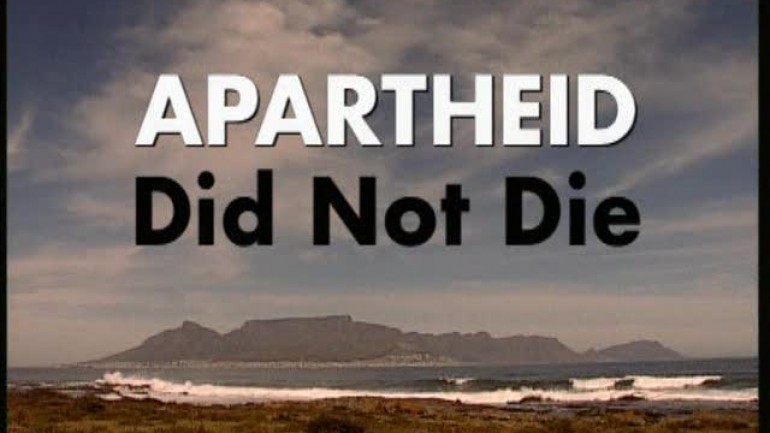

An analysis of South Africa’s new, democratic regime.
“Apartheid based on race is outlawed now, but the system always went far deeper than that. The cruelty and injustice were underwritten by an economic apartheid which regarded people as no more than cheap, expendable labour… Today, the same system is called, without a trace of irony, the free market.”
John Pilger’s attempt to discover what freedom meant to the majority of South Africans four years after the dawn of democracy caused great discomfort among both whites in the country and the new black Establishment. In it, he describes a new, economic apartheid that keeps most blacks in poverty while 5 per cent of the population control 88 per cent of the nation’s wealth. However, Apartheid Did Not Die struck a chord with many of the black majority in whose name the struggle against apartheid had been waged.
Pilger charts the African National Congress’s resistance to the white government, Nelson Mandela’s 27 years in jail on Robben Island, the international sanctions that followed the Soweto massacre of 1976 and how white privilege was at risk a decade later, resulting in new president FW De Klerk lifting the ban on the ANC and freeing Mandela in 1990.
As reality approached, the white Establishment and its backers in Washington and London sought to cling on to power over the economy and keep South Africa safe for international capital, regardless of the colour of its government. In secret meetings with the regime, the ANC agreed “historic compromises”.
These included an amnesty for the killers, torturers and collaborators of the apartheid years, who simply had to take part in a Truth and Reconciliation Commission. “People got away literally with murder,” says Pilger, who is welcomed by Mandela but does not shirk from asking the President awkward questions such as why members of the regime have not shown remorse and avoided responsibility. Mandela is visibly uneasy when Pilger compares specific promises to his people with the harsh reality of their lives since the ANC has shifted to a “market economy”.
Continuing white privilege is exemplified by a socialite trying on designer dresses as she wears jewellery worth more than £100,000 and a property agent revealing that the market has improved for whites since the ANC’s ascension to power while blacks still die every day mining gold fields for multinational companies.
“Did people vote to exchange apartheid for a democracy of privilege and poverty?” asks Pilger. “It was the ordinary people of South Africa who set the pace of change. It was their humanity and their courage that triumphed here… It will be a tragedy for us all if their continuing struggle goes unrewarded, for its inspiration and lessons are universal.”
Apartheid Did Not Die (Central Independent Television/Carlton UK), ITV, 21 April 1998
Producer-director: Alan Lowery; co-producer: John Pilger (52 mins)


